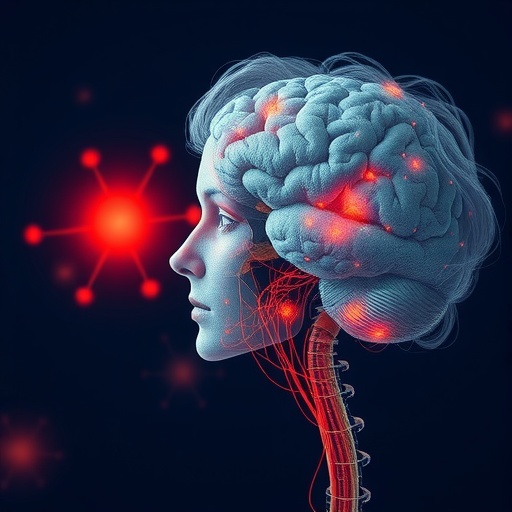For decades, memory impairment has been regarded as the defining characteristic of dementia, but a groundbreaking reassessment of this perspective is now reshaping our understanding of this complex neurodegenerative condition. Recent research spearheaded by an international team of experts suggests that sensory and perceptual changes—affecting vision, hearing, balance, taste, and touch—may be equally significant, yet have been largely overlooked by current clinical practices. This revelation opens a promising frontier for earlier diagnosis and improved care strategies for people living with dementia.
Current dementia assessments predominantly focus on evaluating memory function, often at the expense of other neurological facets. However, mounting evidence indicates that dementia disrupts the brain’s processing of sensory information long before noticeable memory decline appears. Professor Andrea Tales, a renowned figure in dementia research at Swansea University, along with Dr. Emma Richards from Public Health Wales and Professor Jan Kremláček of Charles University, have collectively voiced the need to broaden diagnostic frameworks to include these crucial sensory dimensions.
Their collaborative work culminates in the authoritative volume, A New Approach to Dementia: Examining Sensory and Perceptual Impairment, which systematically presents the science behind these non-memory symptoms. The book notably stands out for its inclusive methodology; it features contributions co-produced by individuals with lived experience of dementia coupled with sensory and perceptual challenges. This innovative participatory approach enriches the scientific discourse by integrating human experiential depth with rigorous academic inquiry.
Sensory deficits reported in dementia extend across multiple modalities. These include altered visual perception such as difficulties in interpreting spatial and color cues, auditory processing challenges especially in complex listening environments, impaired smell and taste sensation, and heightened tactile sensitivity or numbness. Such disruptions can compromise essential daily functions, from navigating familiar surroundings to comprehending speech, often exacerbating confusion and emotional distress in affected individuals.
Dr. Emma Richards emphasizes the clinical gap: many patients recall experiencing these sensory disturbances years ahead of formal diagnosis, yet these symptoms seldom feature in routine cognitive evaluations. Addressing this oversight could significantly alter disease trajectories by facilitating earlier intervention, personalized support plans, and ultimately, improved quality of life.
From a neurophysiological standpoint, Professor Kremláček highlights that these sensory impairments reflect altered brain circuits and processing pathways beyond the traditional memory centers. Neurodegenerative changes impact the thalamus, sensory cortices, and subcortical regions responsible for integrating multi-sensory data, suggesting a far more diffuse pathology in dementia than previously appreciated. This complexity underscores the need for multifaceted diagnostic tools.
Broadening assessment protocols to systematically incorporate sensory and perceptual testing promises several clinical benefits. It enhances the clinician’s ability to recognize subtle, non-memory symptoms, aligns care strategies with the actual lived experience of patients, and fosters more nuanced patient communication. Beyond diagnosis, these insights encourage the adaptation of care environments to accommodate sensory sensitivities, such as modifying lighting, reducing auditory clutter, and using texture-based cues to aid orientation.
Furthermore, embracing this comprehensive approach could enable detection of dementia at preclinical or prodromal stages, where memory deficits are not yet pronounced. Earlier identification of sensory processing abnormalities would create critical windows for therapeutic interventions or lifestyle modifications that may slow disease progression or mitigate impact. Such early-stage detection remains a coveted goal in neurology and geriatrics.
The authors caution, however, against discarding traditional memory assessments; rather, they propose an expanded assessment toolkit that captures the full spectrum of dementia’s heterogeneous manifestations. By doing so, healthcare systems can ensure a more holistic, patient-centered perspective that transcends conventional cognitive metrics.
Importantly, these findings carry significant implications for training healthcare providers. Clinicians, caregivers, and support workers must develop heightened awareness of sensory symptoms and their potential links to dementia. Specialized training programs and standardized evaluation protocols are essential to systemically integrate these new diagnostic dimensions into everyday clinical practice.
As the dementia community grapples with the increasing prevalence of neurodegenerative conditions worldwide, this paradigm shift marks a crucial step forward. By integrating sensory and perceptual impairment into dementia research and care, we can cultivate more empathetic, accurate, and effective approaches. This evolution holds promise not only for improved diagnosis but also for empowering people living with dementia to retain autonomy and dignity throughout their journey.
In summary, this new framework dismantles the memory-centric view of dementia, advocating for an inclusive, multisensory diagnostic lens. By listening carefully to patients’ experiences and expanding scientific inquiry beyond memory tests, the medical community may usher in transformative advances in understanding, detecting, and managing dementia, ultimately enhancing lives on a global scale.
Subject of Research: Dementia; sensory and perceptual impairments in neurodegenerative diseases
Article Title: A New Approach to Dementia: Expanding Diagnostic Horizons Beyond Memory
Web References: https://www.routledge.com/A-New-Approach-to-Dementia-Examining-Sensory-and-Perceptual-Impairment/Tales-Richards-Kremlacek/p/book/9781032734194, DOI: 10.4324/9781003464136
Keywords: Dementia, sensory impairment, perceptual dysfunction, neurodegeneration, cognitive disorders, dementia diagnosis, sensory testing, Alzheimer’s disease, neurophysiology




